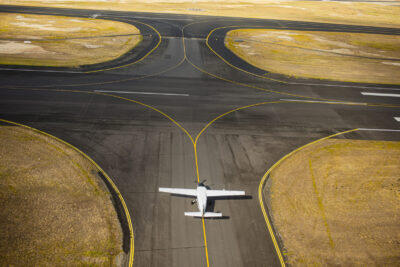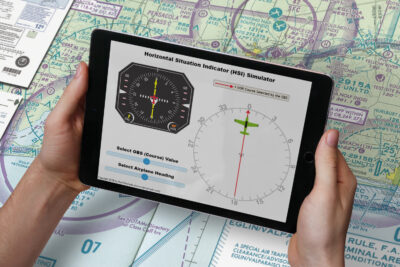What Are the Chances of an Airplane Crashing?
5 October 2022 | Updated on February 05, 2024
Here is some good news for folks who have an extreme fear of flying. You have a lesser chance of dying in an airplane crash than in an auto crash. According to people who specialize in calculating the chances of a plane crashing, humans have a greater chance of being hit by lightning than being involved in a fatal airplane crash. While aviation statistics show that the chances of a plane crashing have fallen considerably over the decades, still, it hasn’t erased the public’s morbid fascination – and fear of airplane crashes.
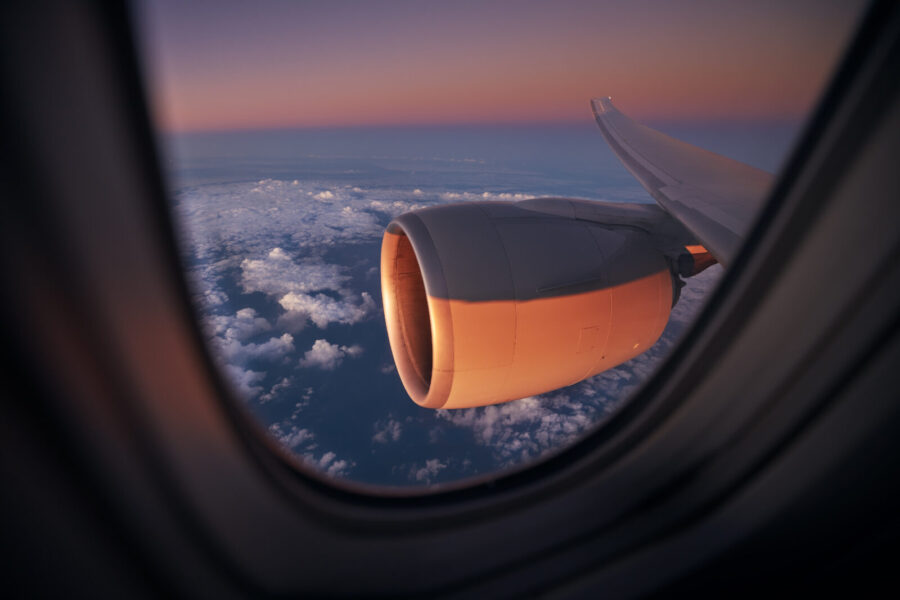
Important Disclaimer: The information and data provided here are for informational purposes only, and are subject to change over time. We strive to provide the most current and relevant information, but the dynamic nature of the topics discussed may result in changes that are not immediately reflected in our content. We recommend our readers to conduct their own research and consult with professionals when making significant decisions based on the data or information provided here. Your reliance on the information in this post is solely at your own risk.
Airplane crashes are so rare, for a good reason. It is probably the most devastating and least survivable transportation-related accident. Plus, the high fatality rate combined with the sheer terror experienced by victims before dying explains why an airplane crash remains a catastrophic event.
Our article examines the chances of an airplane crashing and your expectations of surviving one. We also discuss the probability of a plane vs. a car crash and whether turbulence poses any danger to a flying aircraft. You may want to read our interesting data on the frequency of airplane crashes across counties, types of airplane models, and airliners.
Is flying safe?
Yes, for the most part, unless you are a daredevil barnstormer, a stunt pilot, or an experimental aircraft test pilot. Airplanes remain the safest mode of transportation, with 0.01 deaths per 100 million miles traveled compared to trains (0.04 deaths per 100 million miles), boats (0.44 deaths per million boat hours), and passenger cars (1.42 deaths for every 1 million miles driven).
It is also reassuring to note that the global number of fatalities from airplane crashes has remained constant despite the doubling of air passenger traffic within the same period, despite the increased strain on personnel, equipment, and air traffic infrastructure.
Annual airplane crashes with passenger fatalities
| Year | Number of Passengers | Number of Crashes | Number of Fatalities |
|---|---|---|---|
| 2019 | 4.56 Billion | 14 | 214 |
| 2018 | 4.24 Billion | 19 | 442 |
| 2017 | 3.97 Billion | 5 | 12 |
| 2016 | 3.71 Billion | 11 | 249 |
| 2015 | 3.47 Billion | 17 | 471 |
| 2014 | 3.23 Billion | 14 | 863 |
| 2013 | 3.05 Billion | 16 | 188 |
| 2012 | 2.89 Billion | 14 | 389 |
| 2011 | 2.79 Billion | 17 | 145 |
| 2010 | 2.63 Billion | 17 | 647 |
Shown data from 2010 to 2019
Perhaps the most significant reason for air travel’s high safety rate is the industry’s stringent regulations and controls concerning equipment, personnel training, and aircraft maintenance. Even so, your expectations of flight safety depend primarily on your aircraft type and flight category.
The Federal Aviation Authority FAA regulates all scheduled commercial flights in the United States under 14 CFR Part 121 regulations stipulating stringent commercial aircraft maintenance, inspection, and pilot training standards. Thus, commercial airliners operating under Part 121 have the highest safety records with negligible flight fatalities in the aviation industry despite making up the bulk of domestic flights annually.
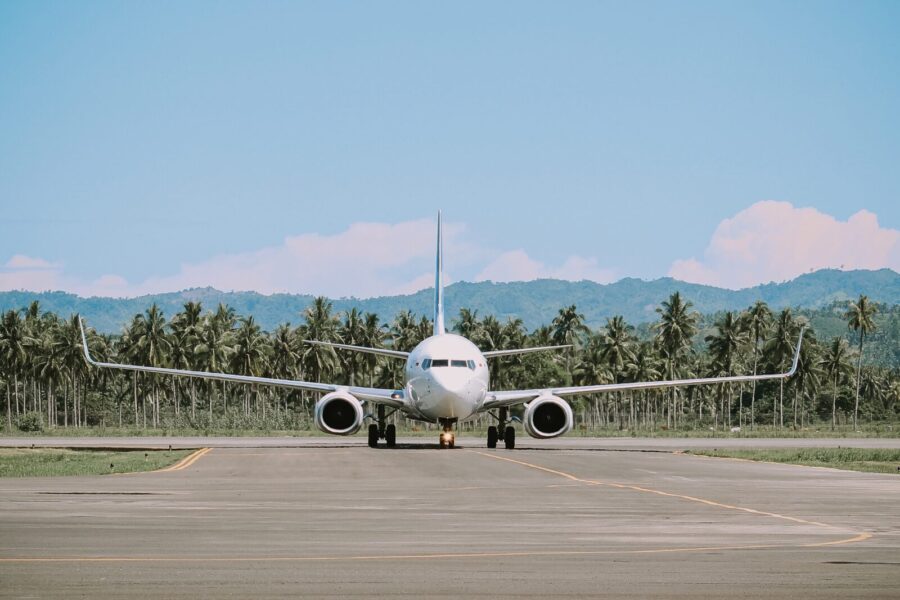
In contrast, general aviation aircraft and flights operating under (14 CFR Part 91) and charter aircraft (14 CFR Part 135) have the highest crash rates in the aviation industry due to less stringent operating requirements for aircraft maintenance, inspection, and pilot training. For example, the fatal crashes involving celebrities and sports people like R&B singer Aaliyah, golfer Payne Stewart, NBA legend Kobe Bryant, and race car driver Dale Earnhardt Jr all fall under Part 135 or part 91 rules.
Chances of an airplane crashing by type of flight
| Flight Type | Percentage of Crashes | Percentage of Fatalities |
|---|---|---|
| General Aviation | 77.8% | 44.7% |
| Agricultural | 4.7 % | 0.8% |
| Non-U.S Commercial | 2.3% | 23.6% |
| Air Taxi & Commuter | 3.3% | 3.3% |
| Air Carrier | 2.5% | 2.4% |
| Other | 9.5% | 25.2% |
What about the pilots?
Airplane pilots are among the most highly trained professionals on earth, and they understand the responsibilities of being at the controls of an airplane. Pilots are trained to successfully read and interpret data from various information streams to fly an aircraft safely. Airlines and aviation companies invest a lot of resources into training and recruiting qualified pilots.
Pilots with a history of drug use, alcohol, and mental health abuse are typically disqualified from obtaining a pilot license. Companies often perform periodic tests to screen their pilots for the presence of any illegal drugs in their system and conduct psych evaluations to determine their mental state. A pilot who fails any of the two tests will be grounded and prevented from flying.

Chances of an airplane crashing during flight.
The chances of an airplane crashing is higher during the landing and takeoff phase and reduced during cruising or maneuvering. Pilots experience higher workloads when landing and taking off and may not always be alert to catch and correct unanticipated incidents in the aircraft performance before something goes catastrophically wrong.
Number of airplane crashes by phase of flight
| Phase of flight | No of Crashes |
|---|---|
| Landing | 20,330 |
| Takeoff | 16,061 |
| Cruise | 11,034 |
| Maneuvering | 10,275 |
| Approach | 8,077 |
| Taxi | 2,438 |
| Climb | 2,351 |
| Descent | 2,289 |
| Go-Around | 1,685 |
| Standing | 1,284 |
| Unknown | 768 |
| Other | 167 |
Shown data from 1983 - 2019
Chances of an airplane crashing in different countries around the globe?
Although we hate admitting it, the chances of an aircraft crashing are higher in some countries than in others. While aviation experts insist that air travel has never been safer, traveling by air in some countries is a literal death gamble due to weak safety and technical regulations, crumbling airport infrastructure and systems, the widespread use of old or obsolete airplanes, and poor pilot training and safety practices.
An example is the Democratic Republic of Congo, an African country with less than 0.1% of global air traffic but accounts for almost 4% of all airplane crashes since 2010. A proof the country’s airspace is one of the deadliest places to fly.
You could argue that the United States airspace is the deadliest in the world because it records more airplane crashes than any country. But the United States has the largest share of global air traffic with more than forty-five thousand daily flights and the busiest commercial air travel routes in the world.
To determine the country with the safest airspace, you should compare the ratio of air passenger traffic in the country with the number of crashes. The table below shows the total number of airplane crashes per country from 1945 to February 2022 and the total number of air passengers registered in each country from 1970 to 2020.
| Country | No of Crashes | No of Air Passengers |
|---|---|---|
| United States | 864 | 926.74 million |
| Russia | 539 | 108.86 million |
| Canada | 191 | 93.35 million |
| Brazil | 190 | 102.92 million |
| Colombia | 184 | 37.03 million |
| U.K | 110 | 142.39 million |
| Indonesia | 106 | 91.32 million |
| France | 105 | 71.29 million |
| Mexico | 102 | 69.94 million |
| India | 95 | 167.5 million |
| China | 76 | 659.63 million |
| Venezuela | 69 | 1.52 million |
| Italy | 78 | 27.76 million |
| D.R Congo | 66 | 0.55 million |
| Ukraine | 64 | 7.6 million |
| Bolivia | 62 | 4.07 million |
| Germany | 62 | 109.63 million |
| Peru | 61 | 18.82 million |
| Philippines | 61 | 47.78 million |
| Spain | 56 | 88.24 million |
| Australia | 51 | 76.85 million |
| P.N Guinea | 49 | 2.03 million |
| Kazakhstan | 49 | 7.66 million |
| Argentina | 45 | 19.46 million |
| Nigeria | 43 | 6.54 million |
Airplane crashes data from 1945 to February 2022, total number of air passengers from 1970 to 2020
Chances of surviving an airplane crash?
Your chances of surviving an airplane crash depend on the circumstances of the crash. According to the National Transportation Safety Board (NTSB), more than 95 percent of airplane passengers survived airplane crashes between 1983 to 1999. And the agency noted a remarkable 55 percent survival rate in serious airplane crashes.
You are more likely to survive a controlled crash landing or ditching because the pilot is still in control of the airplane. However, your chances of surviving are pretty slim to non-existent when an out-of-control plane plummets from the sky and crashes.
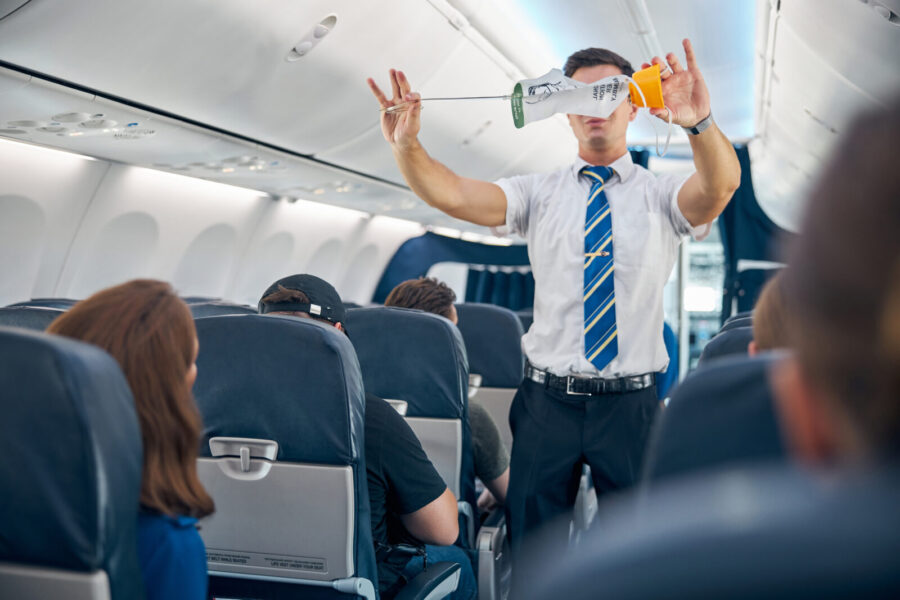

Chances of an airplane crashing from turbulence?
An airplane crash resulting from flying through a pocket of air turbulence is an improbable event. Airplanes are designed to withstand G forces of up to 2.5, which is way more than the pressure exerted by air turbulence. In cases of severe turbulence, pilots can reduce the throttle to ‘appropriate’ speeds to navigate the airplane safely.
How can you survive an airplane crash?
Since you are not in control of the plane, there is absolutely very little you can do to increase your chances of surviving an airplane crash except by staying calm and alert. Your chances of surviving also depend on your ability to remain conscious after crash landing and following the airplane crew evacuation instructions. Some people develop hysteria and lose control during this period, and it is not a wise idea to do the same.
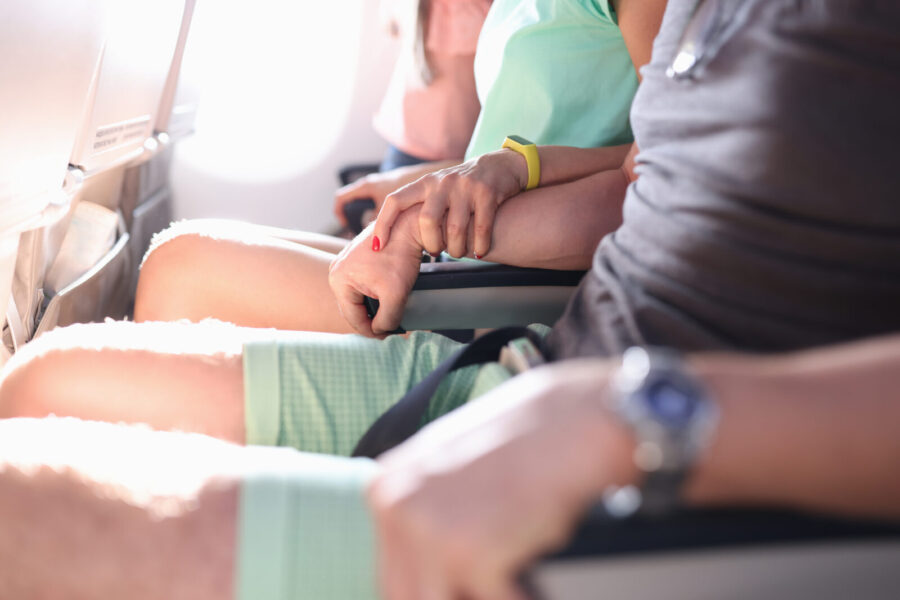

Can dying in an airplane crash be painful?
Death in an airplane crash can result from blunt force trauma or being burnt alive, and both are exceedingly painful and terrifying. However, most airplane deaths are quick and relatively painless because passengers immediately lose consciousness after the airplane strikes the earth.
Conclusion
Airplanes are the safest mode of transportation in 2022 compared to road or rail travel. And the best way to reduce your chances of being in an airplane crash is by flying commercial airliners. However, you have a higher risk of being involved in an airplane crash in countries with inadequate air regulation enforcement and poor safety practices.
